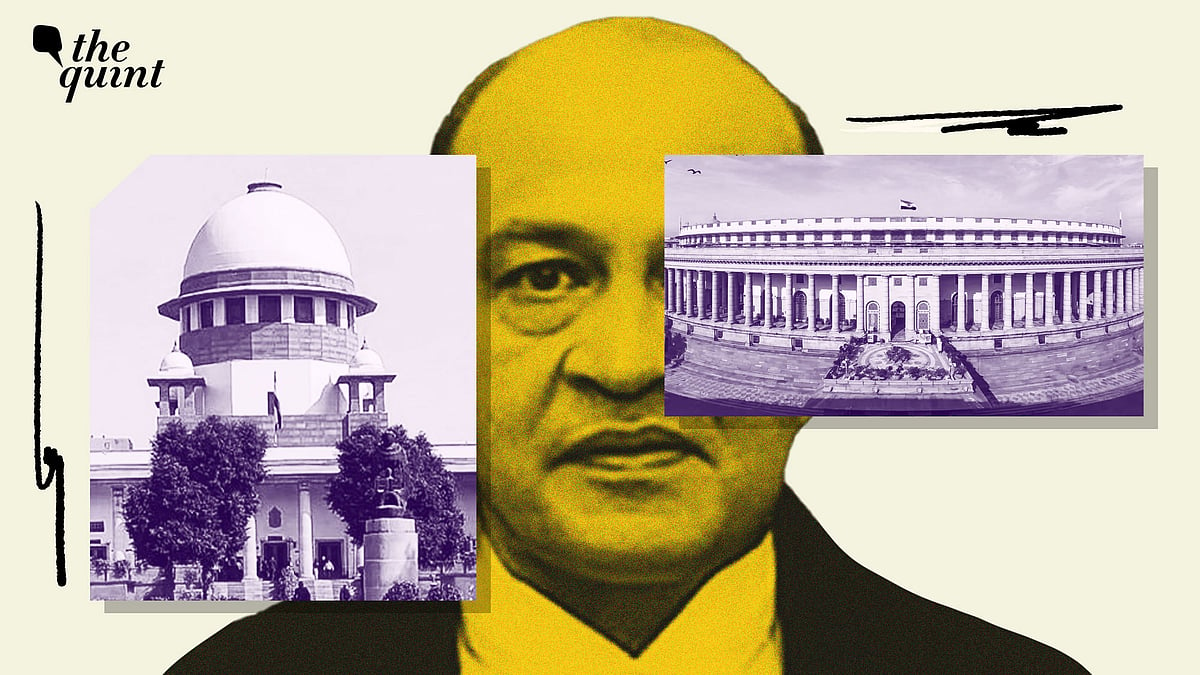
Judiciary on Trial: Justice Varma, Impeachment, and Modi Govt’s Power Play
The Justice Varma episode has hit the judiciary when it is likely to be hurt the most, writes Nagendar Sharma.

advertisement
It is now becoming increasingly clear that in case Justice Yashwant Varma does not resign, he could well earn the dubious distinction of becoming the first judge in Independent India to be impeached.
This episode, however, is not likely to be laid to rest with an impeachment, given the aggressive statements regarding the functioning of the judiciary emanating from the government circles. Though there is no doubt that the much talked-about Constitutional principle of separation of powers has been blurred on numerous occasions during the last 75 years, it appears that the judiciary never found itself so vulnerable as it finds itself now.
A Crisis of Credibility
The judiciary is known to speak through its deeds (judicial pronouncements), unlike other pillars of Indian democracy, who have the advantage of making their views public without any propriety issues being involved.
To illustrate better, just take the Justice Varma issue. The judiciary’s credibility has taken a severe hit due to serious allegations against this judge for his conduct outside the courtroom, though related to his judicial duty. He has not been proven guilty yet and has every right to defend himself at the available forums.
However, given the largely opaque functional style of the judiciary, so much has been said on the issue, but real facts and versions are still not fully in the public domain.
The Narendra Modi government has already made its intent clear to move ahead with the impeachment process of Justice Varma, and it could be set in motion as soon as the upcoming Monsoon Session of the Parliament.
This would be the first government-sponsored impeachment notice in post-Independence India, and going by the political parties' mood, this impeachment will go through smoothly in both Houses and could make Justice Varma the first ever to be removed through impeachment.
A History of Executive-Judiciary Tensions
There is no denying the fact that 75 years since the Constitution came into existence, governments, irrespective of the party in power, do not like a strong and independent judiciary.
One must not forget the famous term “Committed Judiciary,” which had gained so much traction during the Emergency era due to caving in by the judiciary. Some Bharatiya Janata Party (BJP) leaders, including Lok Sabha MP Nishikant Dubey, have pointed towards the Congress era, when the government had the sole power to appoint judges, implying that the then ruling party had complete control over the judiciary.
How the Judiciary Made Itself Vulnerable
This all, however, changed in the decade of 1990s when the judiciary asserted itself and took control of judges appointments by its landmark judgemnts, in what are commonly known as the Second and Third Judges cases.
So, a natural question arises that when the judiciary asserted itself in the past, then why term it as vulnerable now?
The answer lies in the turn of events witnessed in the 21st century. Political executive was increasingly getting restless with the collegium system. In fact, it is not the Modi government, but its predecessor, the late Dr Manmohan Singh’s UPA-II, which introduced the National Judicial Appointments Commission (NJAC) Constitution Amendment Bill in Parliament, and even got it passed in the Rajya Sabha to end the collegium system of appointments. However, the bill lapsed since the government’s term ended before the Lok Sabha could take it up.
A Constitution bench of the Supreme Court struck down this law and restored the collegium system. Surprising as it may sound, it is from here that the judiciary made itself vulnerable.
Government Veto and the Battle Over Appointments
The Modi government is not the Manmohan Singh government. It cleverly transferred the judicial appointments veto to itself. The government started sitting over the recommendations of names of judges sent by the collegium, which it did not like.
Such was the acrimony that former Chief Justice of India, TS Thakur, and former Supreme Court judge, Justice Sanjay Kishan Kaul, separately (at least eight years apart), had warned the Union Law Ministry in open court of contempt of court in case the government did not clear the collegium recommendations.
However, nothing changed. The Chief Justices heading the collegiums soon realised the futility of recommending names for appointment of judges without having the government on their side. Therefore, the veto power has clearly shifted towards the government.
Judicial Independence Under Siege
Coupled with the veto power on judges' appointments is the government aggression in asserting the supremacy of the Parliament over the judiciary. This charge is being led by the ever vocal Vice President Dhankhar, who has minced no words in trashing even the basic structure of the Constitution.
Add to this the massive embarrassment the judiciary has faced with self-goal in Justice Varma episode.
The judiciary of India is clearly wounded and it remains to be seen whether it will be able to bounce back to retain its glory and hard-earned independence.
At the moment, it is wobbling and hurtling from one crisis to another. The Modi government will choose its timing to strike on judicial appointments and accountability. Can the judiciary pre-empt and save itself ? The answer lies in the uncertain future.
(The author is a former BBC and Hindustan Times journalist, who has covered judiciary related matters for a long time. He is currently Executive Editor of India’s only Dolby enabled podcasting platform www.earshot.in. This is an opinion piece, and the views expressed are the author’s own. The Quint neither endorses nor is responsible for them.)
- Access to all paywalled content on site
- Ad-free experience across The Quint
- Early previews of our Special Projects
Published: undefined